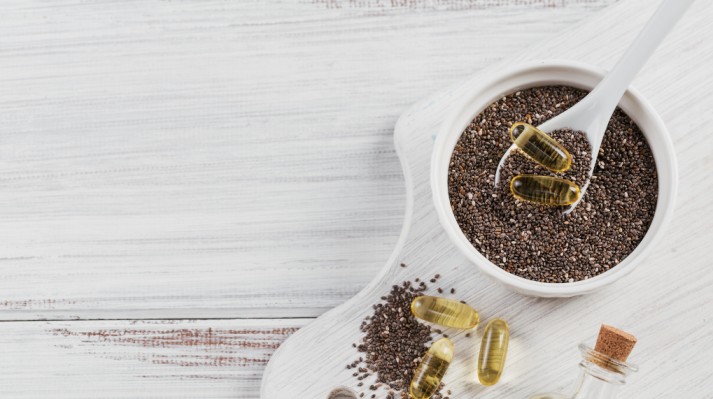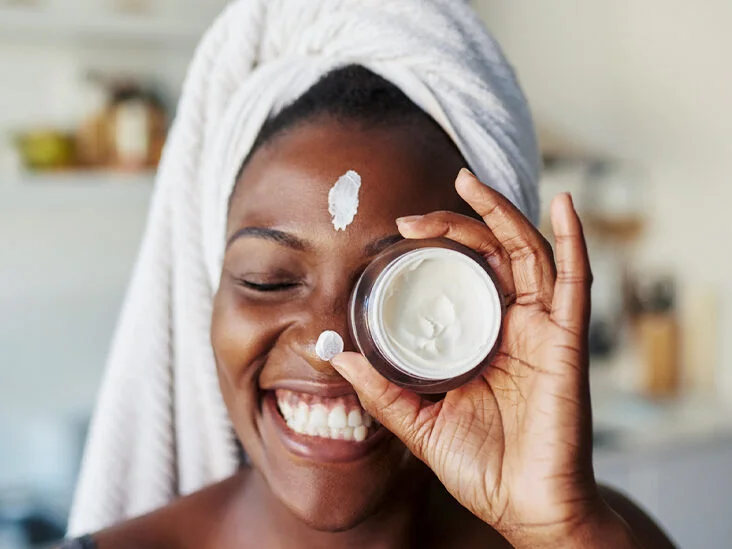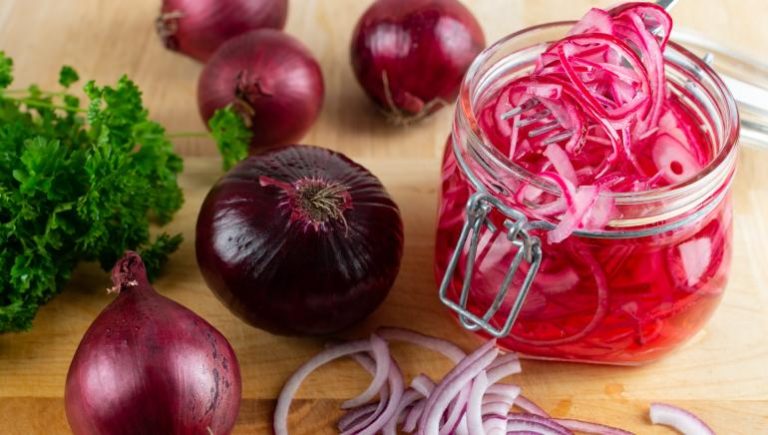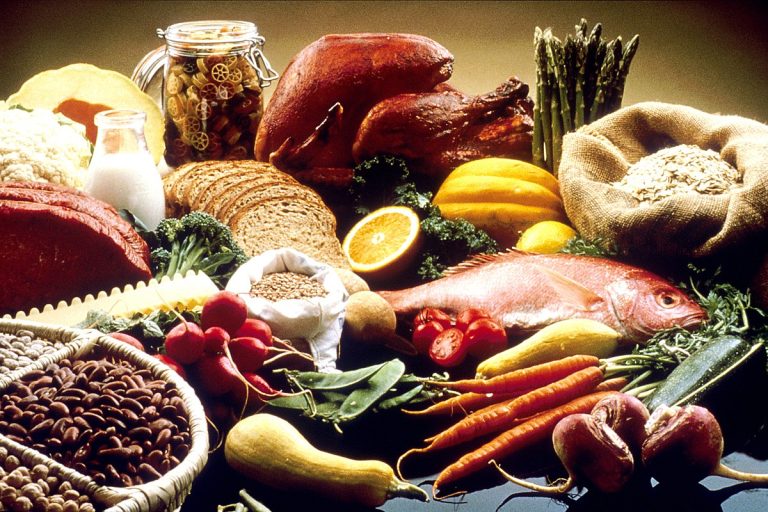If you’ve noticed collagen being mentioned everywhere lately—from beauty influencers to sports nutritionists—you may be asking yourself: “Why all the hype?”
There is a good reason for the enthusiasm. Collagen is not just another trend in the world of wellness; it is one of the most abundant and critically important proteins in the body. Collagen makes up approximately 30% of total body protein and is the substance that holds together skin, joints, muscles, and even your gut. In fact, collagen is derived from the Greek word kólla, meaning glue.
As we age, natural collagen production starts to break down and decrease, leading to signs of aging, decreased ability to recover from exercise, and increasing mobility issues. The good news is that we can support collagen levels through diet, lifestyle, and supplementation (like 1Chaze Collagen).
In this blog, we are going to explore:
- What is collagen and types of collagen
- What collagen does for your body
- Signs you may need more collagen
- How to boost collagen naturally
- Why 1Chaze Collagen should be at the top of your list for healthy skin, joints, and just feeling good overall.
What is Collagen?
Our skin, bones, tendons, cartilage, muscles, blood vessels, blood, and connective tissue contain a structural protein known as collagen. It provides strength, flexibility, and structure—similar to steel rods in a building. Without collagen, the “scaffolding” of our body becomes weak and decays.
Interesting fact: Type I collagen fibers are very strong—Type I collagen is stronger than steel (gram for gram).
Types of Collagen & Their Roles
While there are 28 identified types of collagen, the most commonly found in your body are:
Type I – Found in skin, bones, tendons, and ligaments.
Supports skin elasticity, wound recovery, and bone density.
Type II – Found in cartilage.
Cushions joints and prevents wear and tear.
Type III – Found in skin, muscles, and blood vessels.
Supports skin firmness and organ health.
Type IV – Found in skin layers and organ tissues.
Functions as a filter and supports organ integrity.
Type V – Found in eyes, hair, and skin layers.
Supports eye functionality and tissue strength.
What Does Collagen Do?
Collagen serves several essential functions in your body. Here are its essential roles:
- Keeps Skin Firm & Youthful
Collagen has a structural and support role in the skin. As collagen production slows down with age (by about 1% a year starting in your 20’s), skin loses elasticity, structure, and firmness. When this happens, the skin becomes thinner, dehydrated, and less pliable, which leads to wrinkles and sagging.
- Supports Joint Health
Collagen makes up cartilage, which serves as the “shock absorber” between your bones. Therefore, if your body produces less collagen, your joints will become stiffer, more friction will occur in the joints, and injury risk will increase.
- Helps Bone Strength
Collagen is around 30% of bone mass. A collagen-deficient bone will become brittle and lead to a greater risk of “osteoporosis.”
- Aids Muscle Mass & Recovery
Collagen is found in connective tissue in muscle. Collagen will help sustain the strength, pliability, and recovery in response to new strength-building exercises.
- Aids Gut Health
Collagen has amino acids such as glycine and glutamine, which aid in maintaining the gut lining and preventing “leaky gut.”
- Improves Hair & Nail Strength
Collagen is the building block of keratin, the protein that makes hair and nails.
Why Collagen Declines Over Time
There are numerous factors that lead to the decline of collagen:
- Ageing (natural degradation which begins around 25 years of age)
- Lack of nutrition (especially low supply of protein, vitamin C, and minerals)
- Sugar (overconsumption can damage collagen fibers)
- UV (damages collagen in the skin)
- Smoking (decreases oxygen supply to the skin)
Signs You May Need More Collagen
- Wrinkles and skin sagging
- Joint stiffness or discomfort
- Weak nails and thinning hair
- Slower muscle recovery
- Digestive issues
How to Boost Collagen Naturally
Yes, we can boost collagen naturally with proper food and some lifestyle changes.
Eat a Variety of Protein-rich Foods
Because collagen is made from amino acids, protein in the diet is important for collagen synthesis.
Best food options with protein include: fish, chicken, eggs, dairy products, beans, and lentils.
Eat Food that is Rich in Vitamin C
Vitamin C is important for collagen synthesis.
Best food options with Vitamin C include: citrus fruits such as oranges or lemons, kiwi, bell peppers, and broccoli.
Stay Hydrated
Collagen works best in a hydrated state.
Don’t Smoke or Consume Molecular Sugar
Both smoking and excess sugar consumption cause damage to the collagen fibers in the body.
Use Collagen or Hydrolysed Collagen as a Supplement
Hydrolysed collagen is also known as collagen peptides—and it is easier for the body to absorb and use.
There are three important things to keep in mind when it comes to collagen supplements: purity, type, and absorption. This is where 1Chaze Collagen stands out.
Key Features of 1Chaze Marine Collagen
Premium Japanese Marine Collagen Sourced
High-grade fish skin ensures ultra-purified and high levels of Type I collagen, which is critical to support the greatest skin elasticity and glow.
High Levels of Type I Collagen
Type I is the most abundant and therefore the most effective for improving skin, hair, and nails.
Hydrolyzed Peptides allow for maximum absorption
We use a patented process that breaks collagen down to peptidoglycans (small peptide sizes) to ensure your body absorbs and uses it for joint support and anti-ageing.
Contains key amino acids
Includes high levels of glycine, proline, and hydroxyproline, which are essential for collagen generation and repair of connective tissue (muscles and tendons).
Clean and Conscious
Free of preservatives, artificial colours, sweeteners, emulsifiers, sugar or fats. Gluten-free and Keto safe.
Indian Friendly, Daily Use
Made for Indian stomachs—mixes seamlessly into soups, dals, smoothies or tea.
Safe and Regulated
Produced under rigorous Quality Control guidelines, following ICMR and FSSAI safety and efficacy standards.
Benefits of 1Chaze Marine Collagen
- Radiant skin – enhances elasticity, reduces wrinkles, and improves moisture levels.
- Joint & bone support – supports cartilage repair and bone density.
- Faster muscle recovery – fantastic for athletes and active lifestyles.
- Stronger hair & nails – enhances keratin production for healthy growth.
- Gut health support – contributes to digestive lining integrity.
Collagen: The Secret to Feeling Strong Inside Out
Collagen is more than just a beauty protein; it is the building block of your healthy skin, flexible joints, strong bones, and youthful vitality. And even though a balanced diet and lifestyle are important, 1Chaze Collagen ensures you are getting the top-quality Type I collagen with the greatest absorption benefits.
1Chaze Collagen is different from most other brands because it uses premium quality Japanese marine collagen, has a clean formulation, and can fit into the Indian lifestyle; it is safe and effective and is backed by science, so it can be a suitable option for anyone who wants to look and feel their goddamn best.
Frequently Asked Questions (FAQs)
- Is it safe to use collagen every day?
Yes. Hydrolysed collagen peptides like in 1Chaze Collagen are safe and well absorbed.
- When will I see results?
Typically, most individuals can see improvement in respect to skin hydration and joint comfort in 4–8 weeks.
- Do vegetarians use collagen?
Marine collagen is derived from fish so it is not considered vegetarian. However, plant-based alternatives (which are not actual collagen) will assist in providing the necessary compounds for collagen production.
- Can collagen support athletes?
Yes. Collagen supports joint health, muscle recovery, and injury prevention.
- Does collagen taste fishy?
1Chaze Collagen is flavour-neutral and mixes easily in food and drinks.








